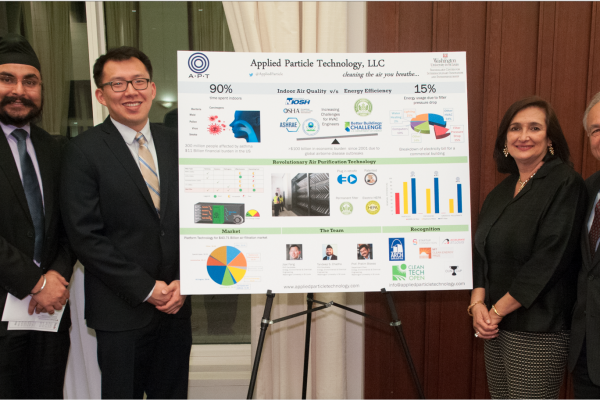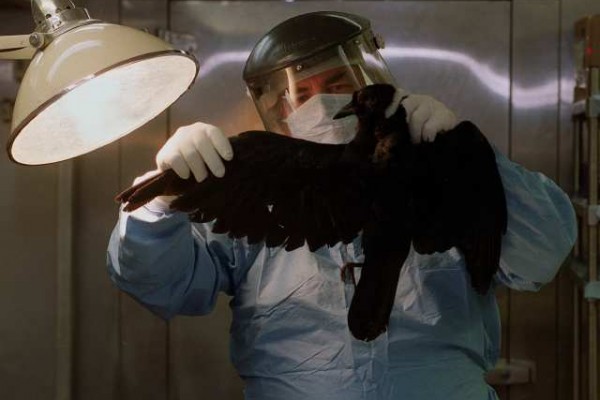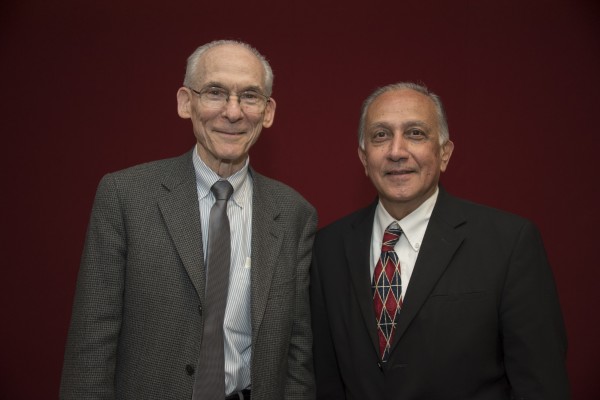Fail Better with Mark Smith
Meet Mark Smith, JD, director of the Career Center and failed candidate for Congress. Smith’s story is the first in a new video series called “Fail Better,” which showcases Washington University in St. Louis faculty, staff and students who have failed big, sometimes in very public, humiliating ways.
Fail Better: What we can learn from losing
Many college students dodge risks, but innovation and self-discovery often spring from failure, says Dedric A. Carter, PhD, associate provost and associate vice chancellor for innovation and entrepreneurship“Fail Better,” a new video series, will showcase Washington University staff, faculty and students who have failed big — sometimes in very public, humiliating ways.
Global Impact Award winner selected
Now in its second year, the Suren G. Dutia and Jas K. Grewal Global Impact Award is given to Washington University in St. Louis-based entrepreneurs who use technology to solve real-world problems. A total of 19 teams entered this year’s competition, and the winner of the $50,000 prize, announced Nov. 2, is Applied Particle Technology.
The View From Here: 11.2.15
Images captured in and around the Washington University campuses. To view captions, click on the “i” in the upper left corner.
Whatever happened to West Nile?
A study in the Nov. 2 issue of Proceedings of the National Academy of Sciences is the first to fully document the demographic impacts of West Nile virus on North American bird populations. Data from bird-banding stations shows more species were hit than suspected, and half of those have yet to recover.
Voyager expert Stone to speak for Robert M. Walker Distinguished Lecture Series
At 7 p.m. Thursday, Nov. 12, Edward C. Stone, PhD, project scientist and public spokesman for the twin Voyager spacecrafts, will visit the campus of Washington University in St. Louis and describe the probes’ 36-year journeys across the solar system. Stone will describe spectacular flybys of Jupiter, Saturn, Uranus and Neptune and Voyager I’s departure from the solar system. The lecture is part of the Robert M. Walker Distinguished Lecture Series hosted by the McDonnell Center for Space Sciences in Arts & Sciences.
Students honor medical faculty, residents
To show their appreciation for exemplary service in medical education, School of Medicine students presented the school’s faculty and house staff with the Distinguished Service Teaching Awards for the 2014-15 academic year. The honors are initiated by students and implemented with support from the Office of Medical Student Education.
Constantino, Luby receive awards from child psychiatry academy
The American Academy of Child and Adolescent Psychiatry (AACAP) has honored Washington University child psychiatrists John N. Constantino, MD, and Joan L. Luby, MD, for their pioneering research with children.
WashU Expert: New James Bond film returns to emotional roots
James Bond forever sips martinis, forever unaffected by his own life of violence. Yet the unflappable film Bond stands in marked contrast to Ian Fleming’s original novels, writes film scholar Colin Burnett.
Master gene orchestrates regeneration of damaged peripheral nerves
School of Medicine scientists have identified a master gene involved in orchestrating the regrowth of peripheral nerves — the nerves that extend from the spinal column to the hands and feet and have the ability to regenerate and help people regain some movement and sensation. Understanding how these nerves regenerate may aid efforts to regrow spinal cord neurons.
View More Stories








